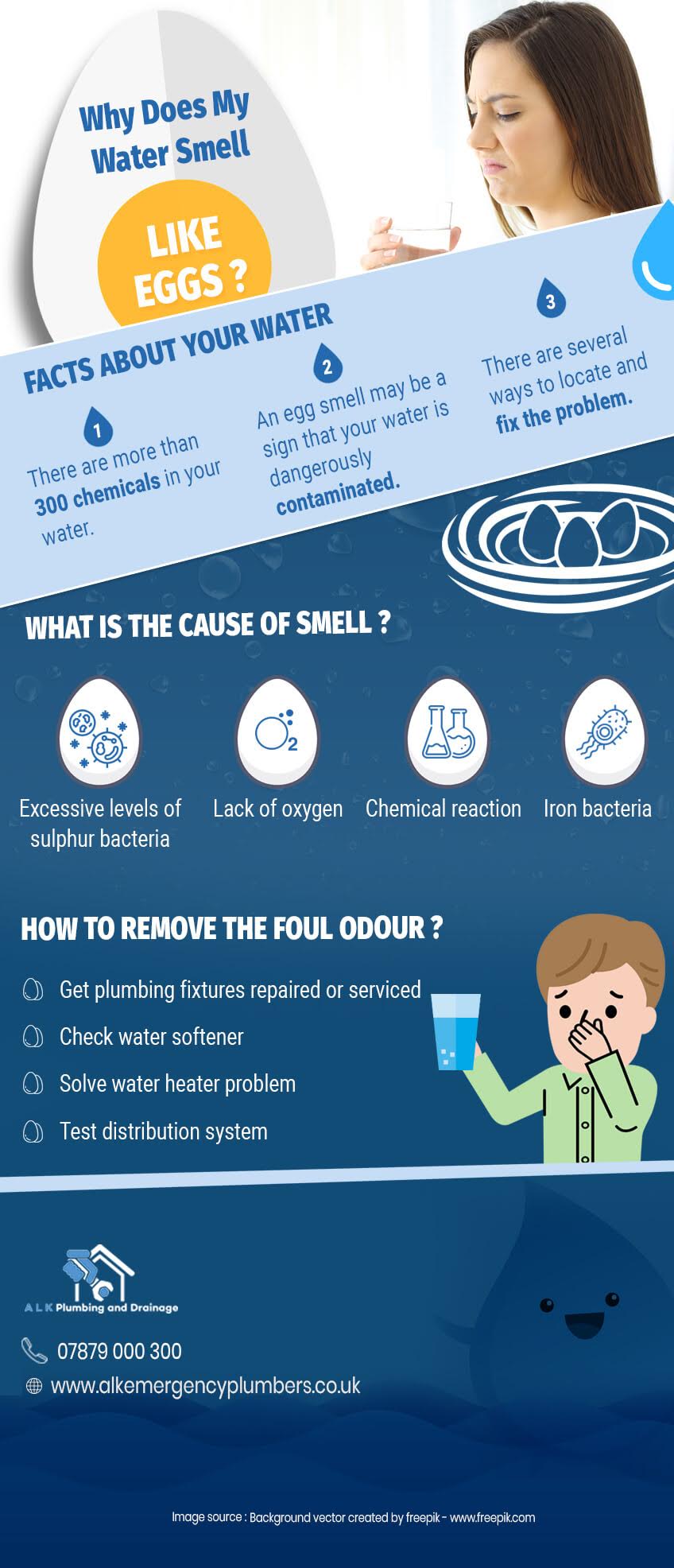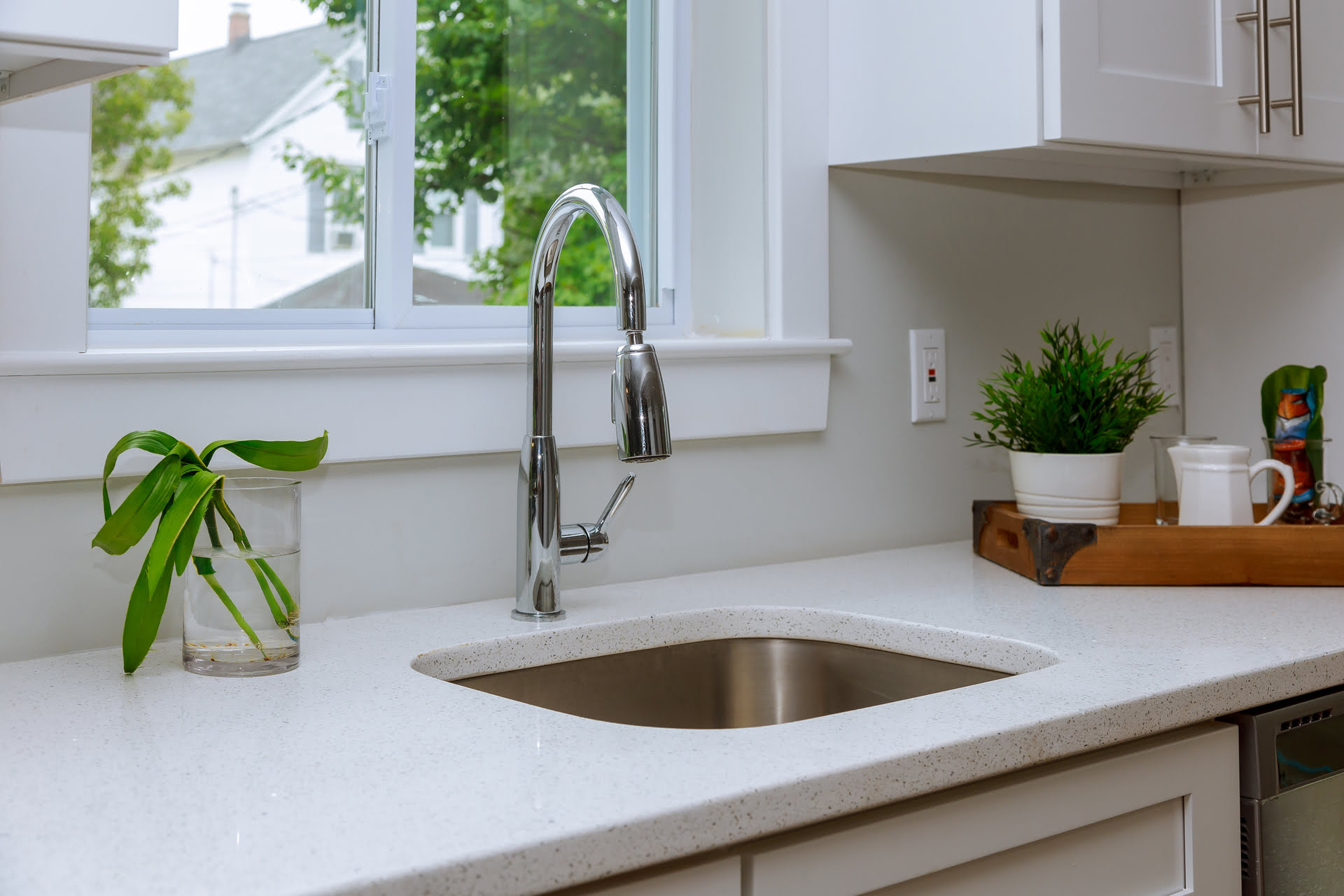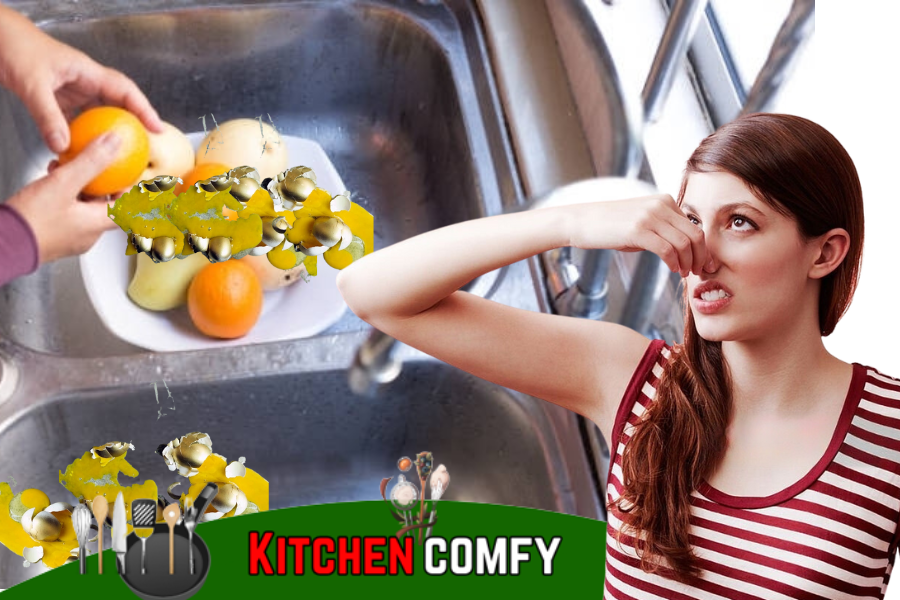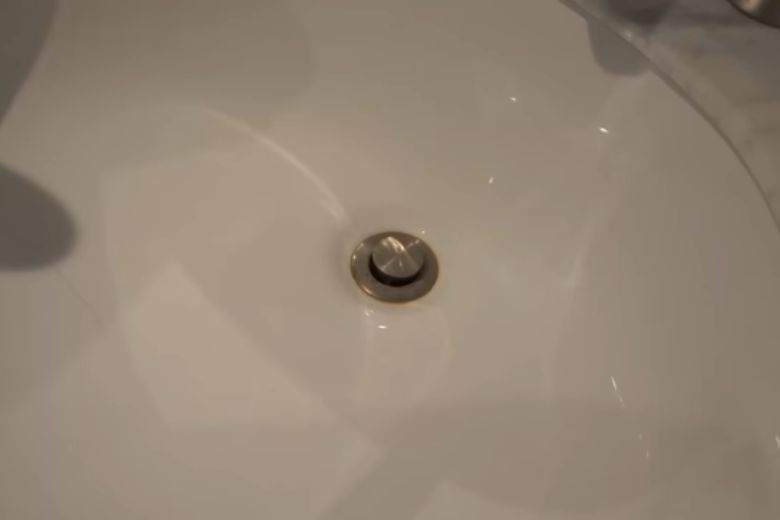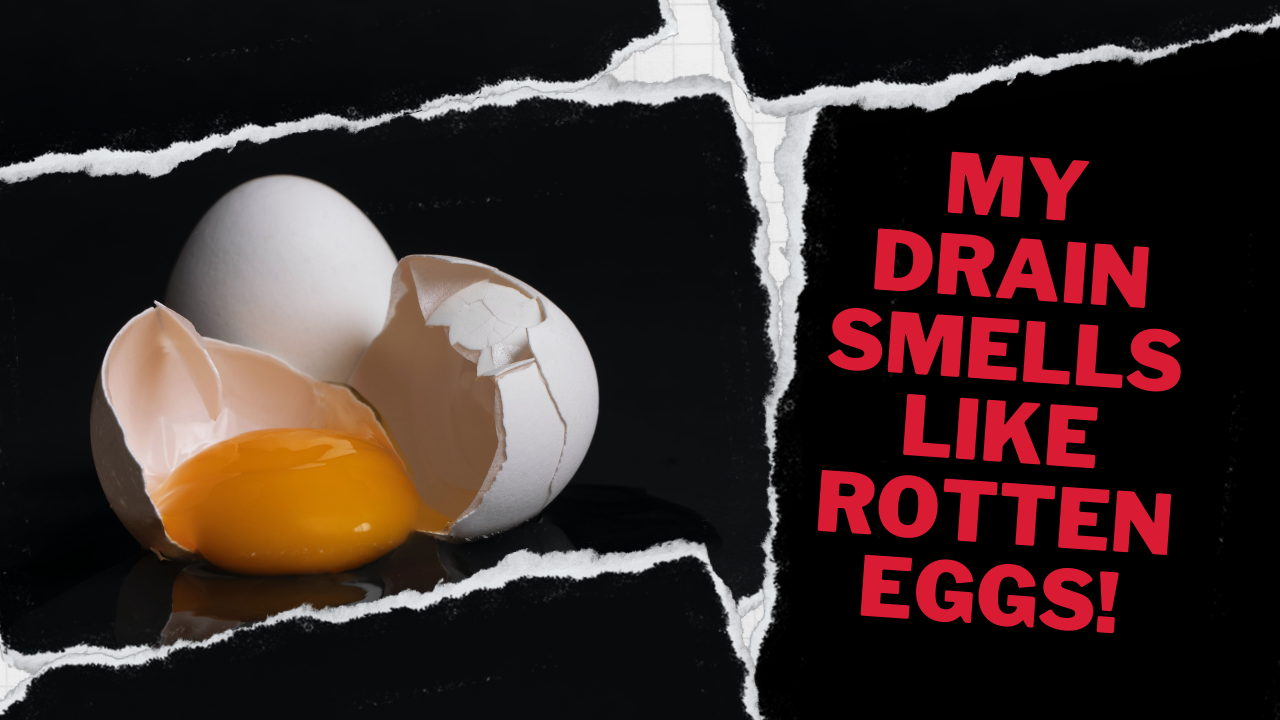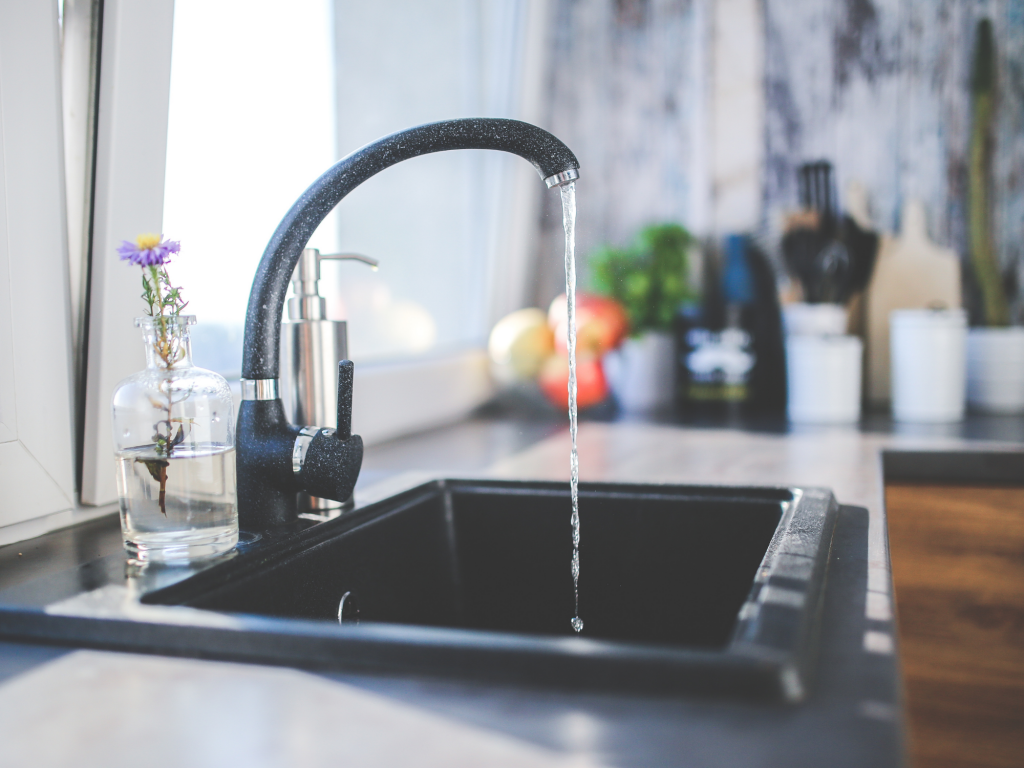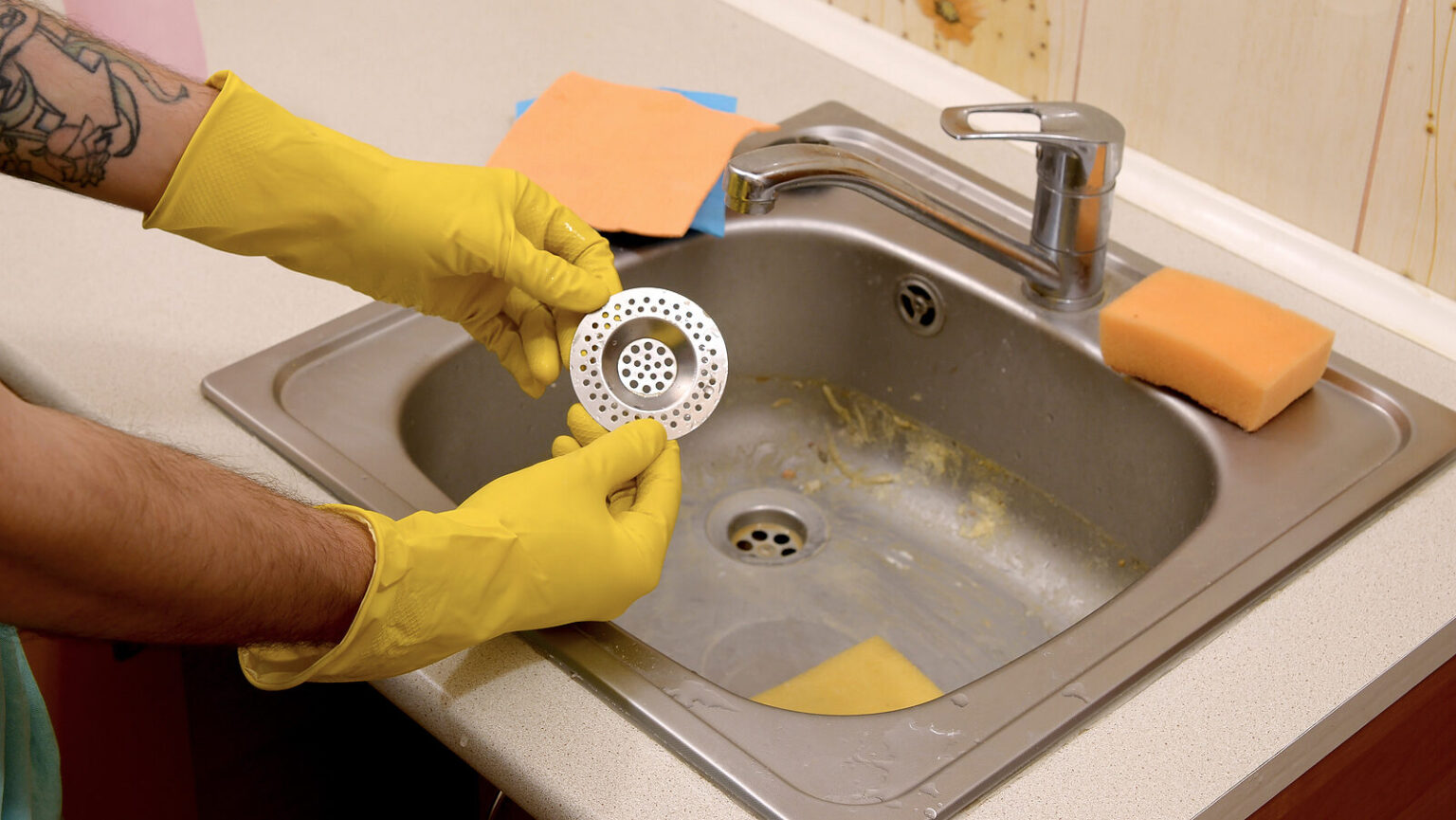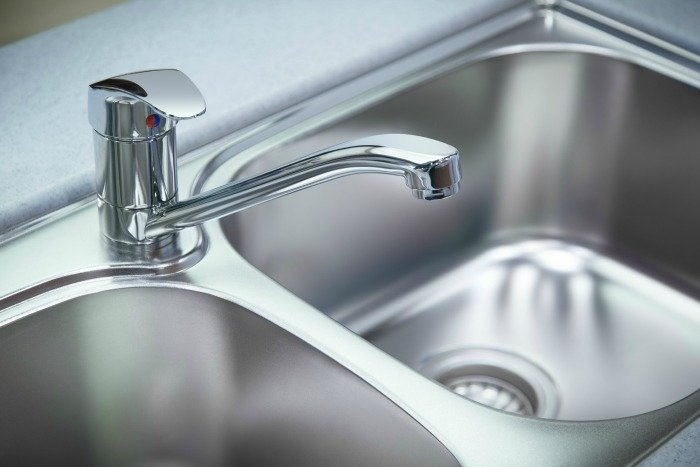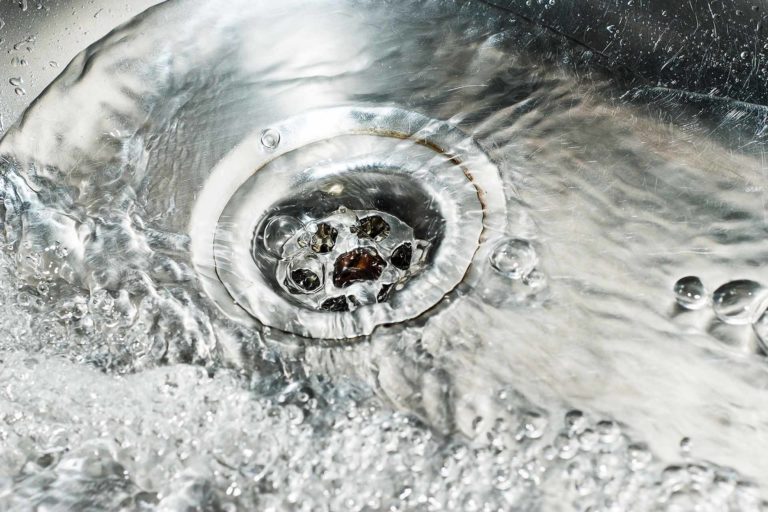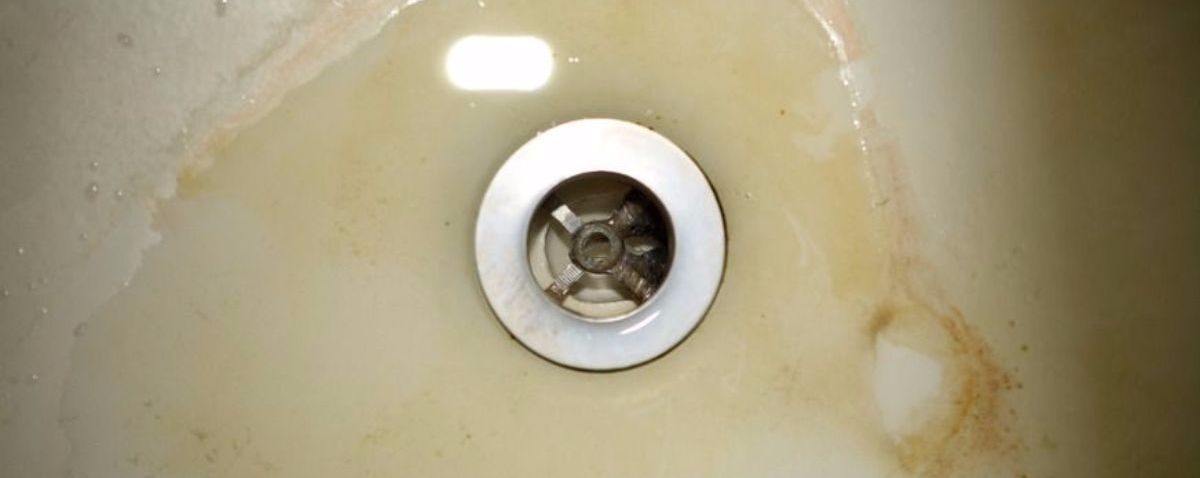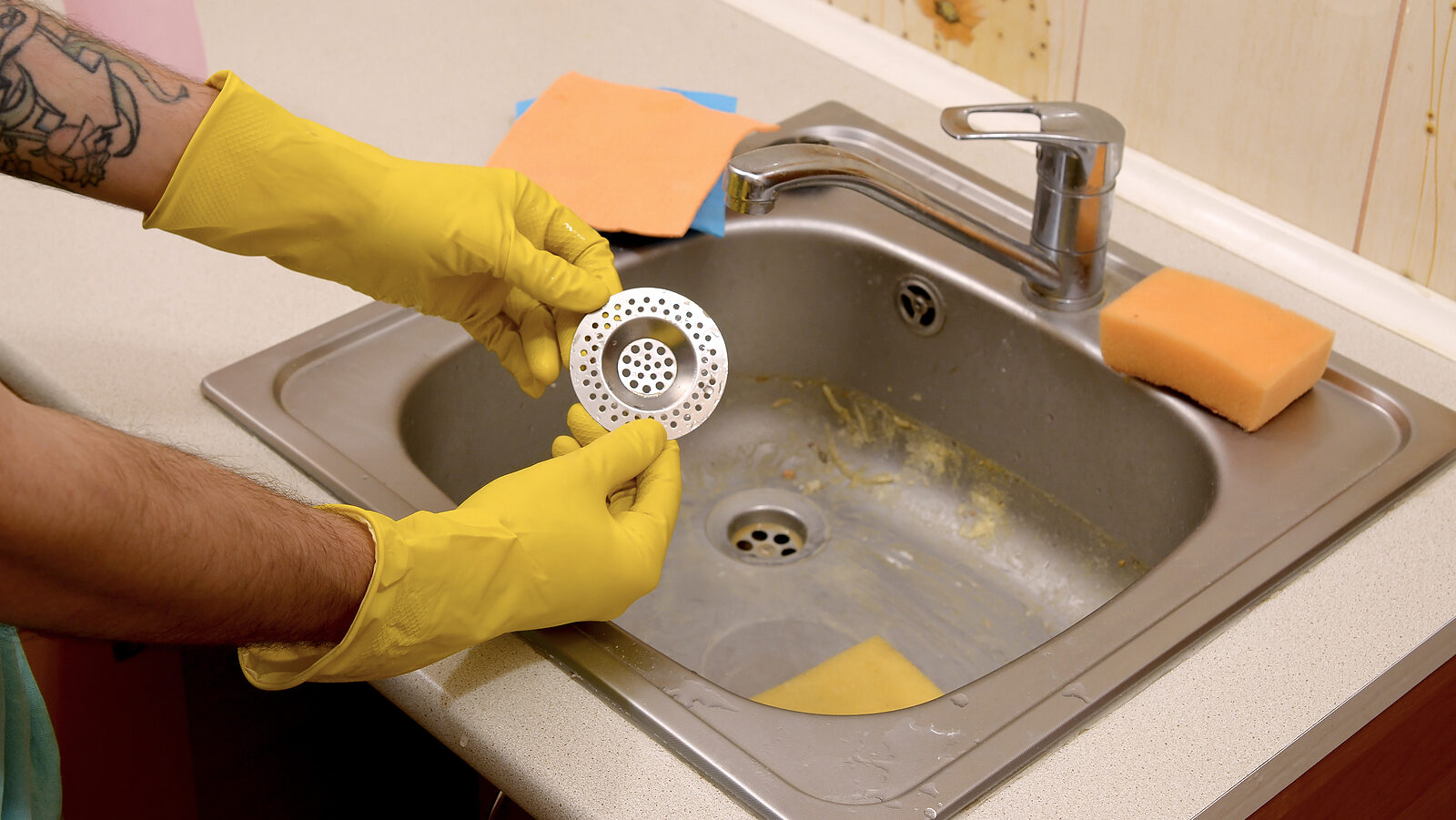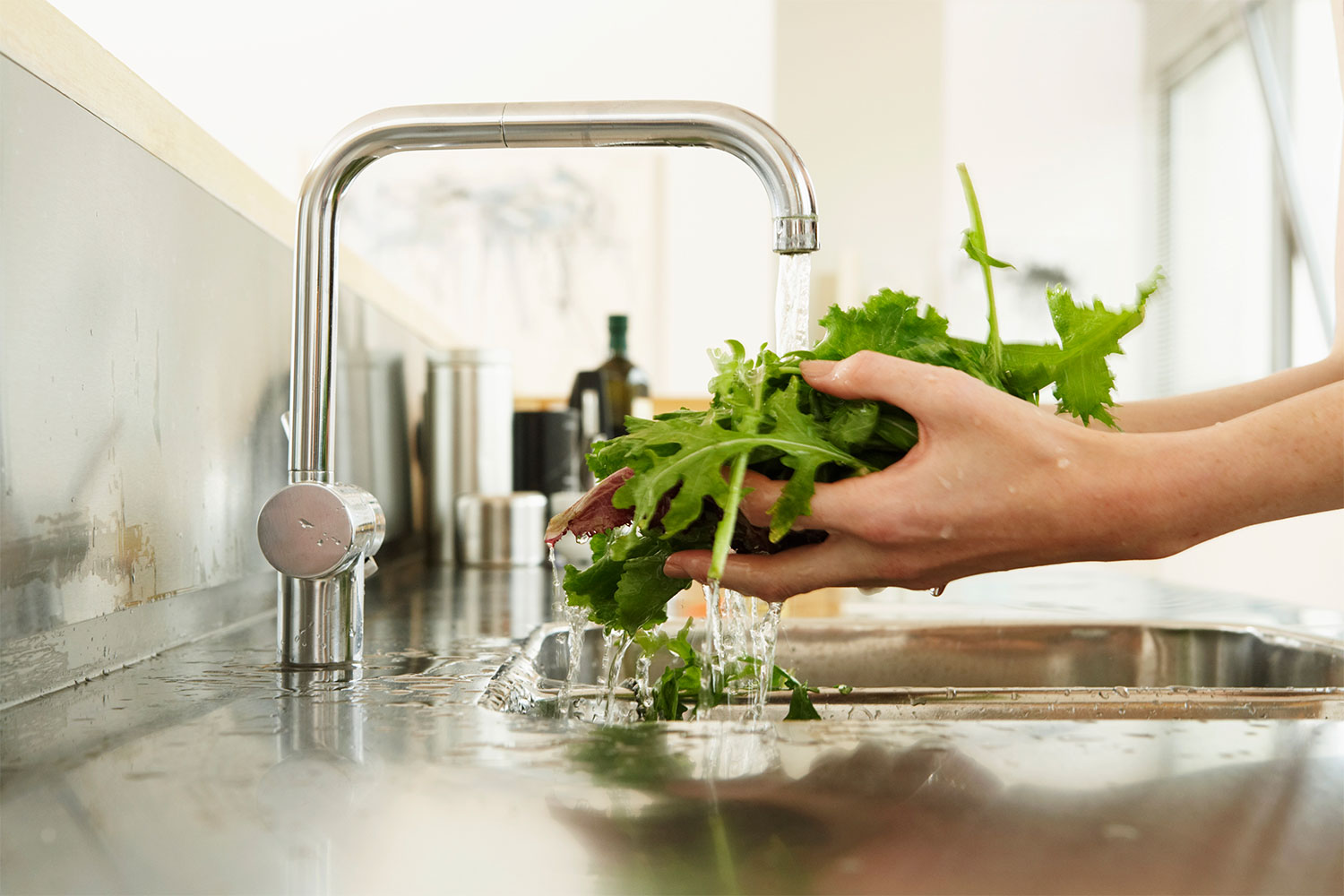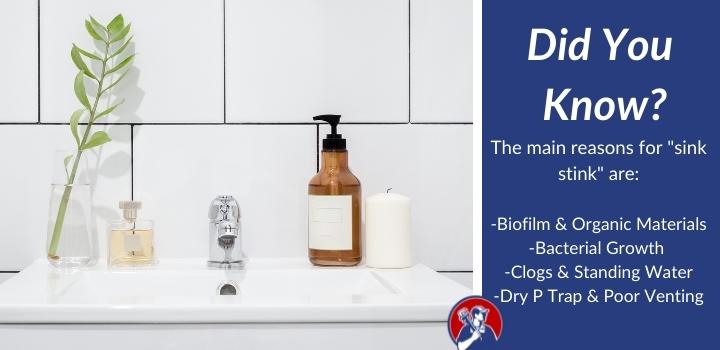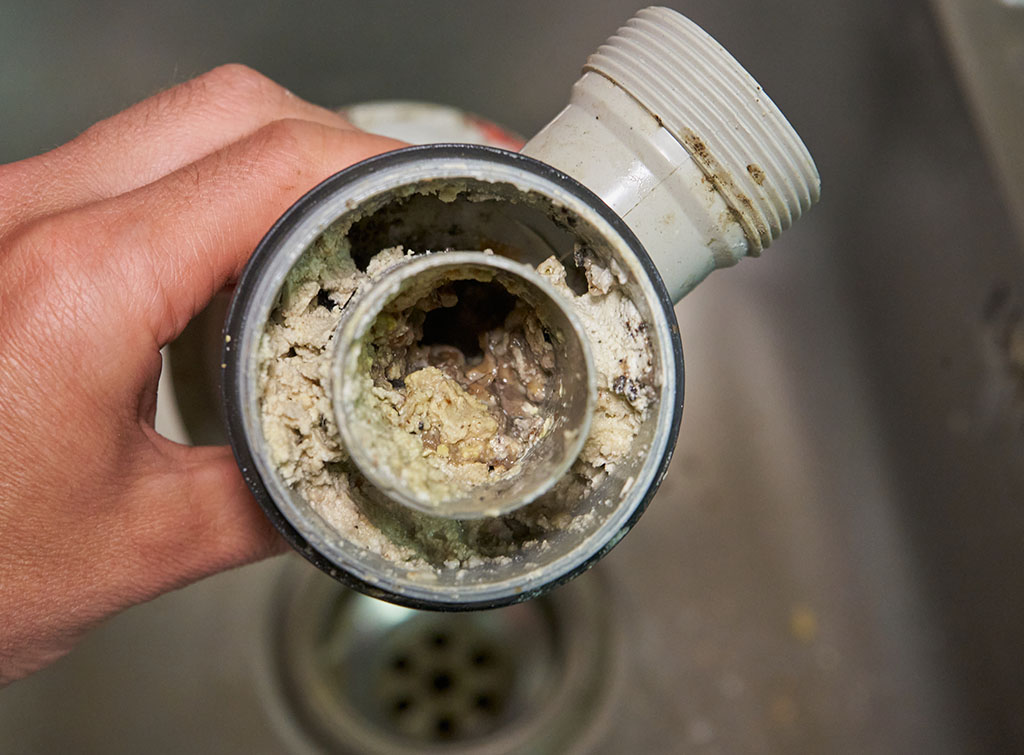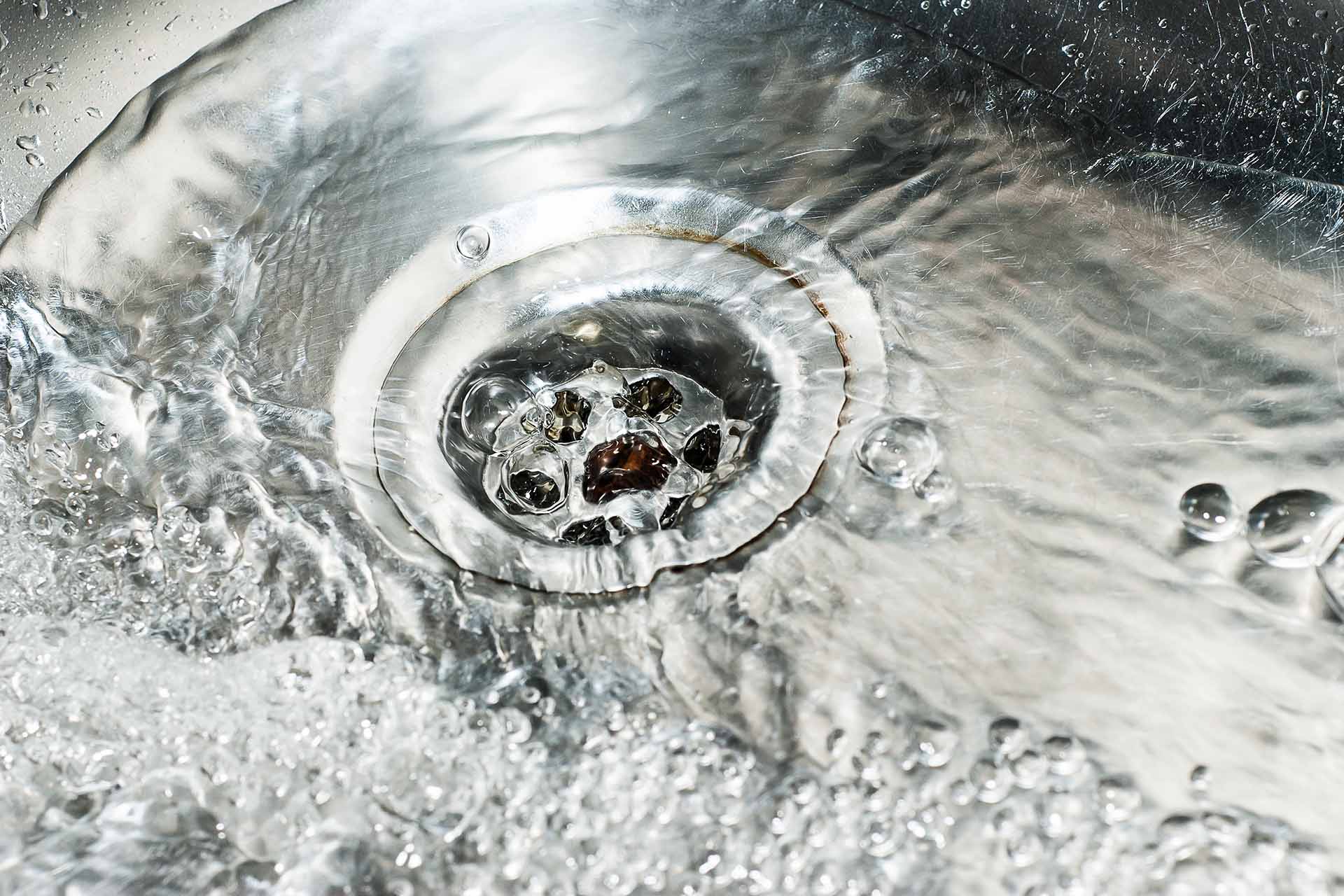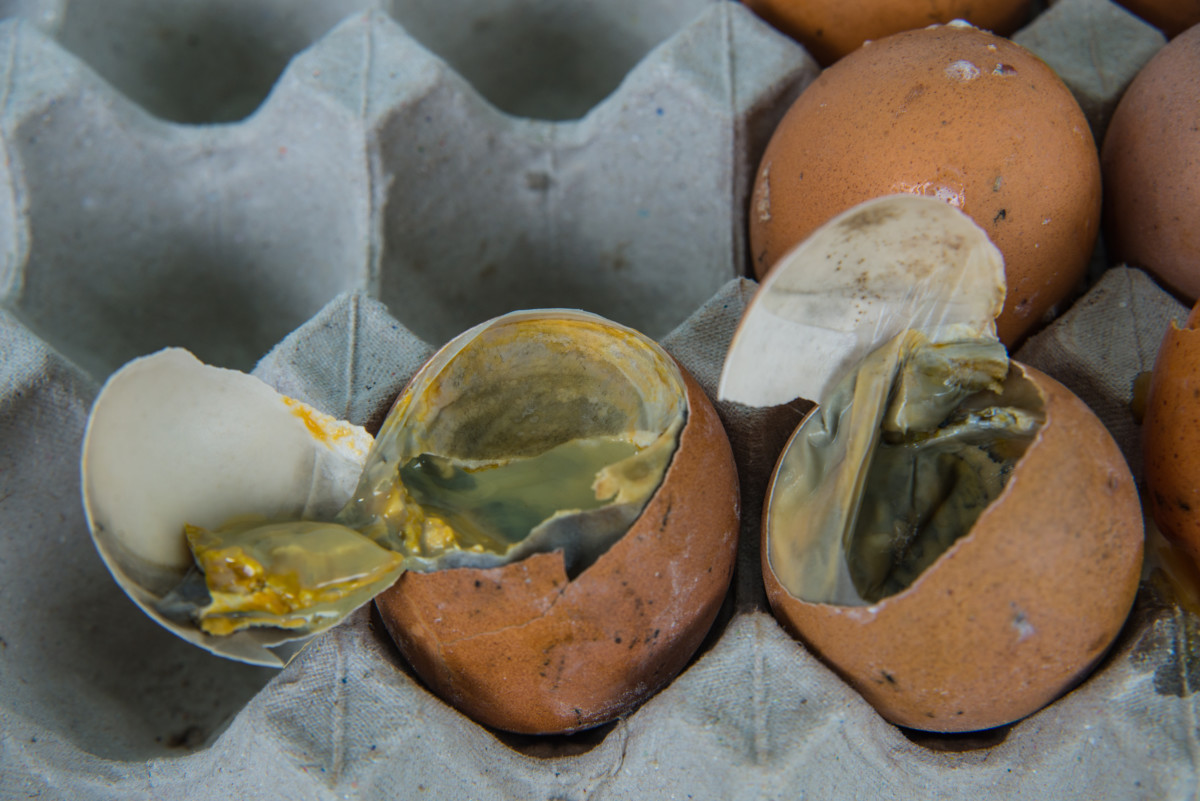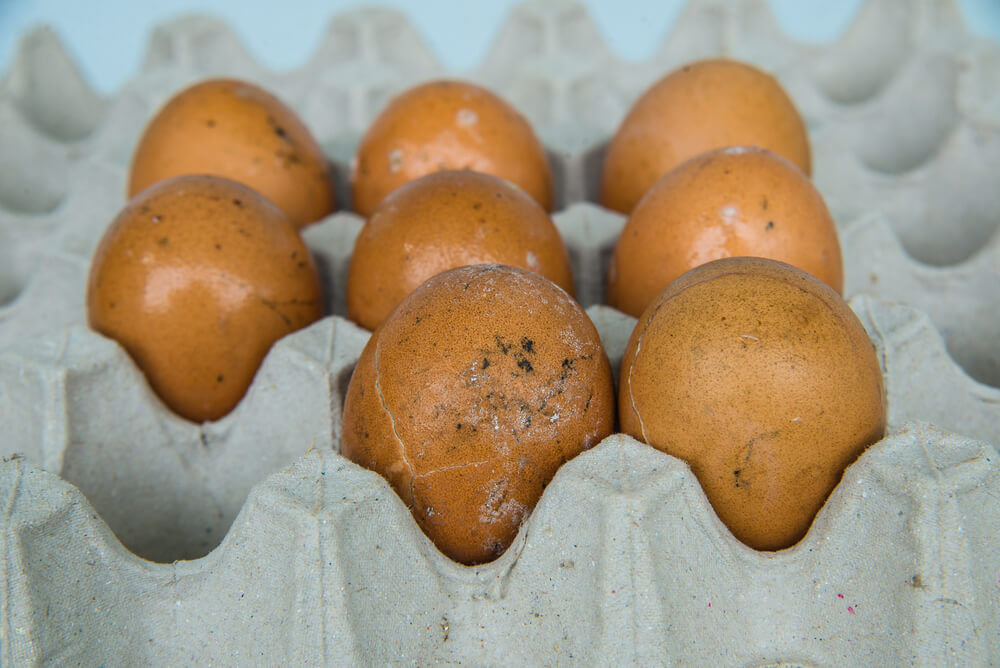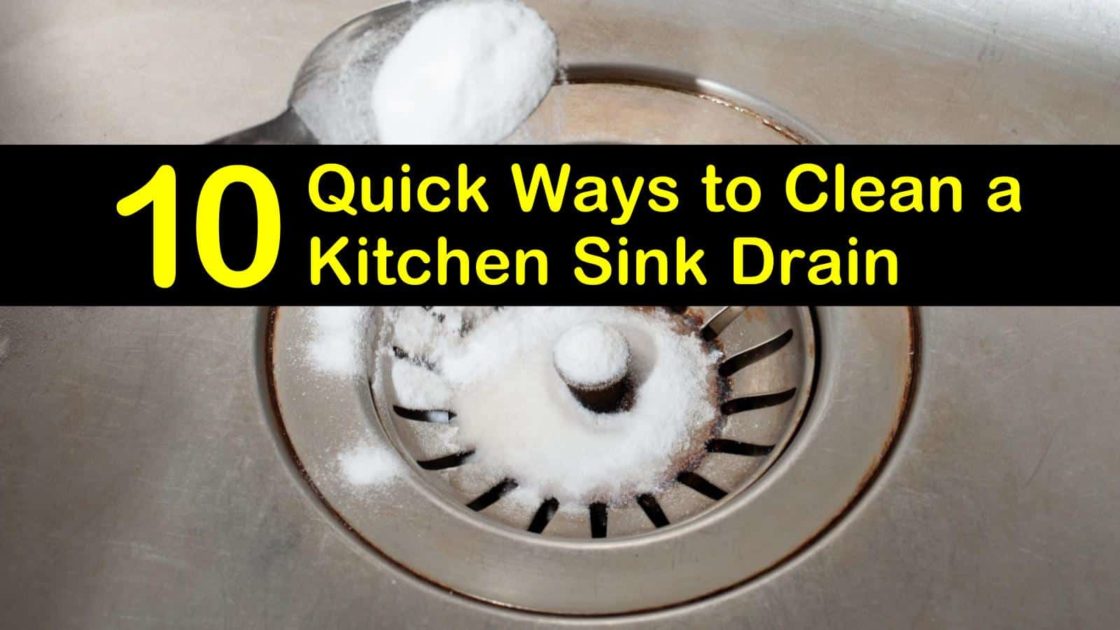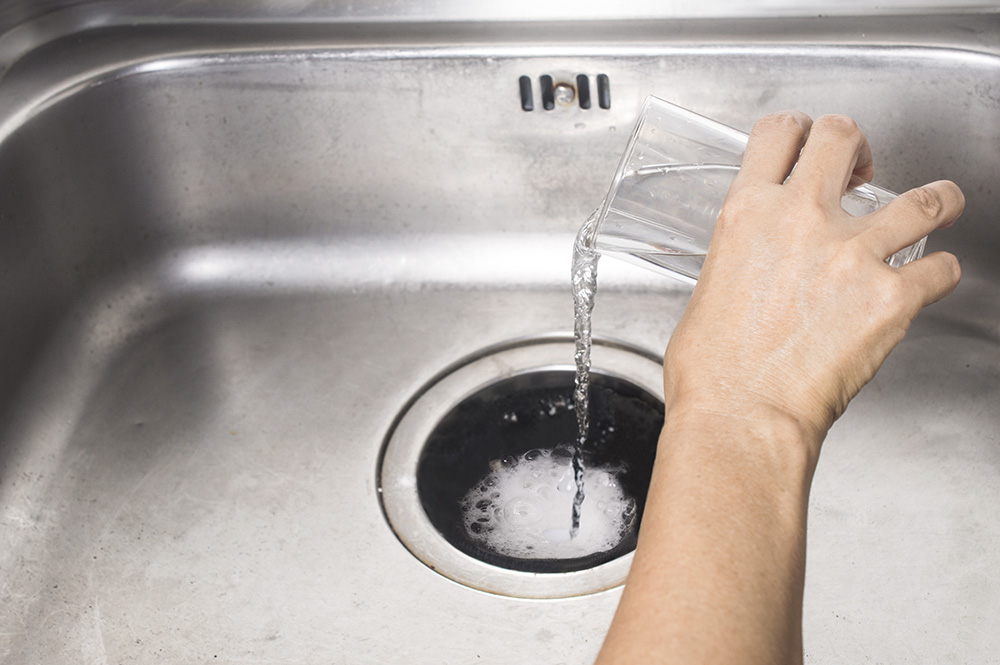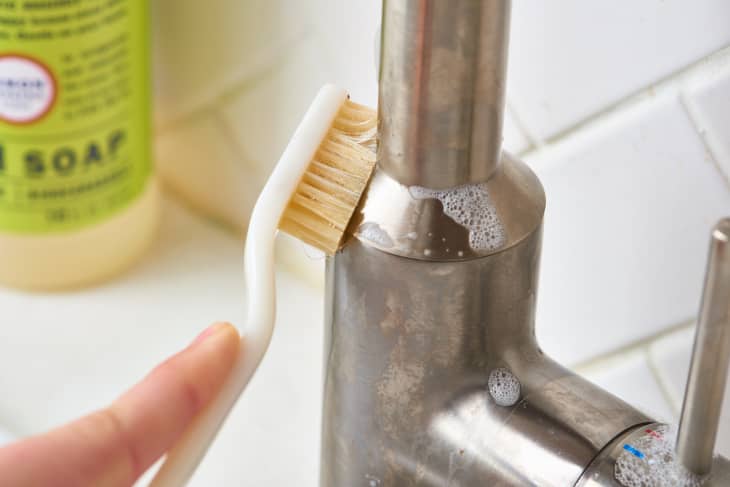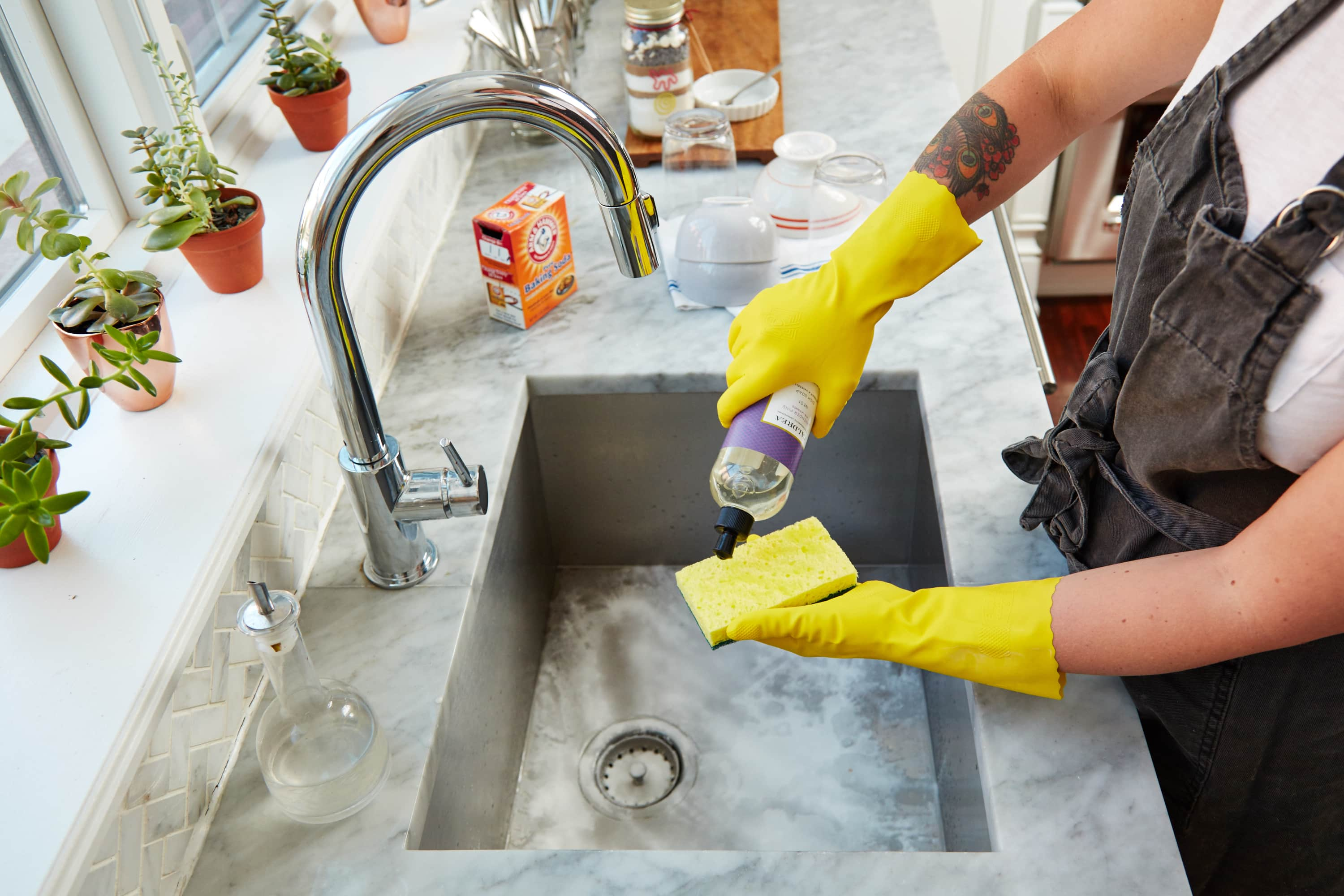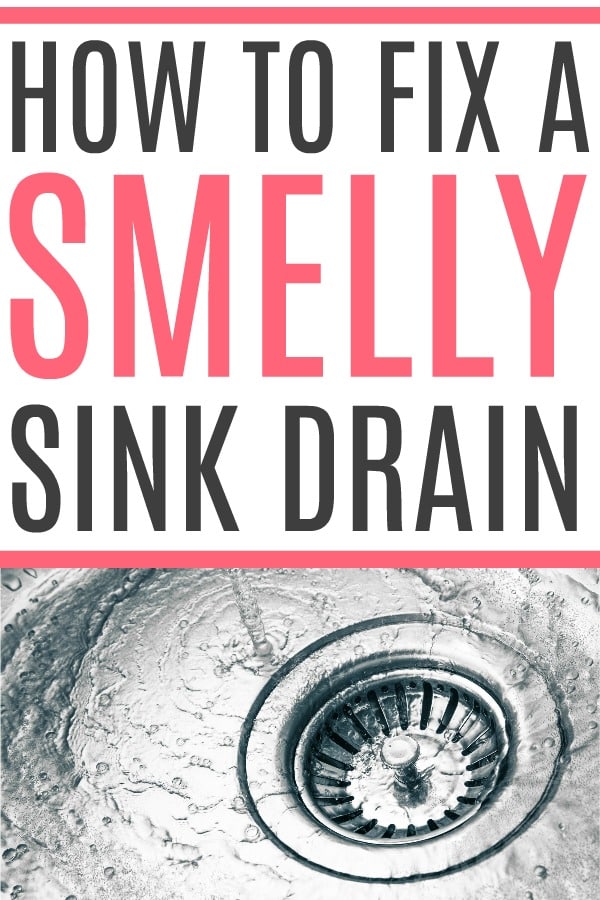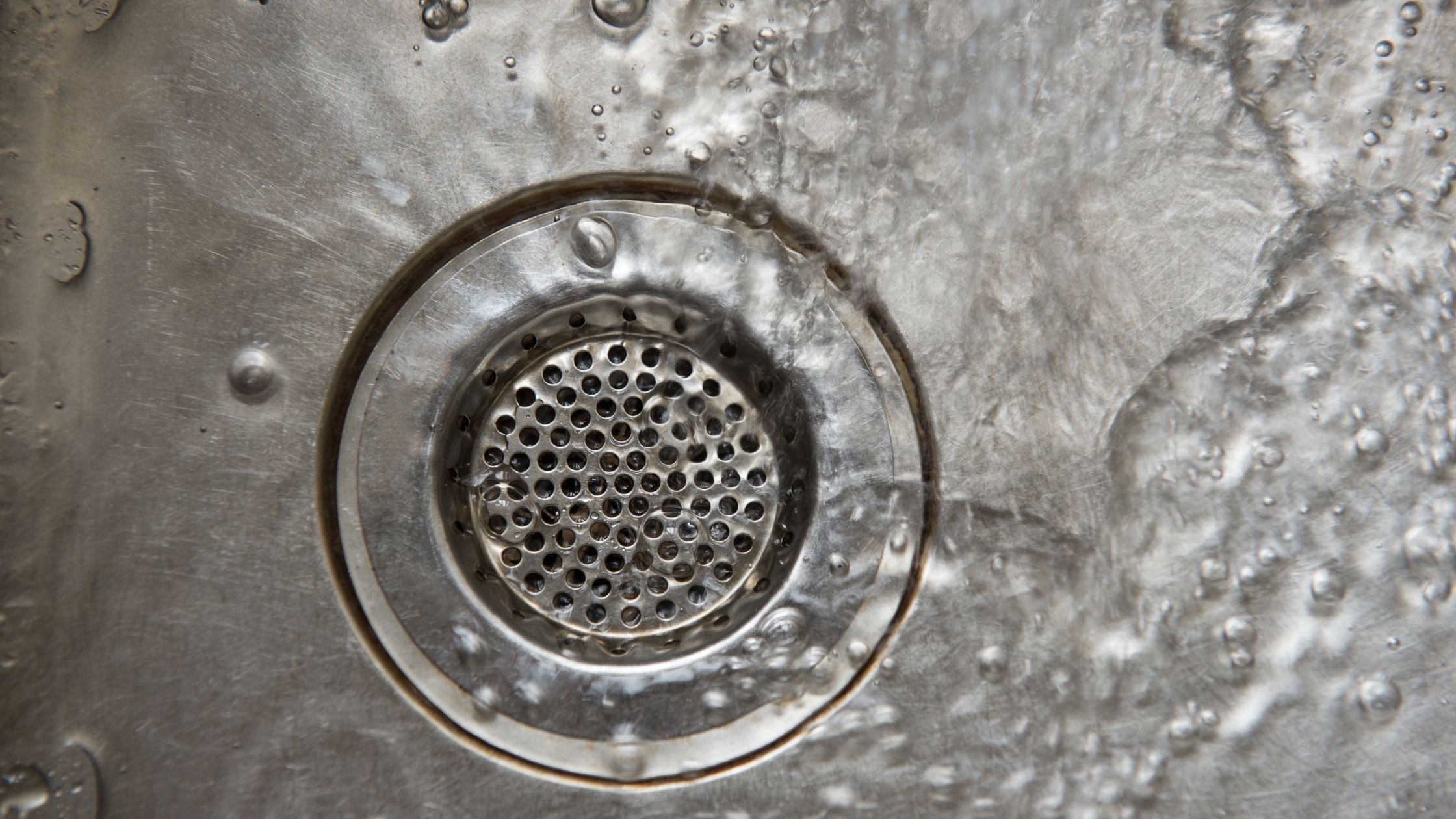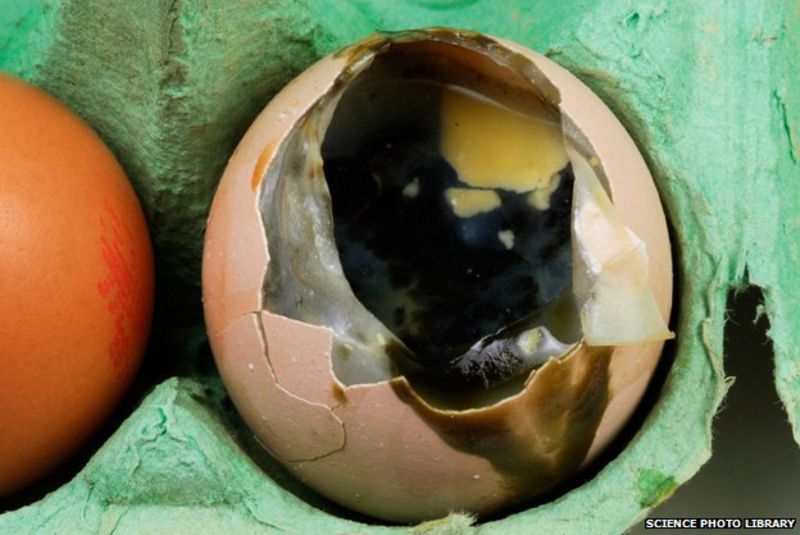There's nothing worse than walking into your kitchen and being hit with the overwhelming smell of rotten eggs. If you're experiencing this stinky issue, chances are it's coming from your kitchen sink. But don't worry, you're not alone. Many people deal with this problem and there are simple solutions to get rid of the smell for good. First, let's explore why your sink smells like rotten eggs in the first place.How to Get Rid of Rotten Egg Smell in Your Sink
There are a few common reasons why your sink may be emitting a rotten egg smell. One of the main causes is a buildup of food particles and debris in your drain. Over time, this can create a breeding ground for bacteria and produce a foul odor. Another common culprit is a dry p-trap. The p-trap is a curved pipe under your sink that holds water to prevent sewer gases from entering your home. If the water in the p-trap evaporates, it can allow those gases to enter your home and create a rotten egg smell. Other factors that can contribute to a stinky sink include clogged vents, sewer line issues, or a malfunctioning garbage disposal.Why Does My Sink Smell Like Rotten Eggs?
The first step in getting rid of the rotten egg smell in your sink is to thoroughly clean your drain. To do this, you can use a mixture of baking soda and vinegar. Start by pouring half a cup of baking soda down the drain, followed by half a cup of vinegar. The chemical reaction between the two will help break down any buildup and eliminate odors. Let the mixture sit for about 10 minutes before flushing it with hot water. If the smell persists, you can also try using a pipe snake or plunger to physically remove any clogs or buildup in the drain.How to Clean a Stinky Sink Drain
If your sink still smells like rotten eggs after cleaning the drain, there may be other underlying issues causing the odor. If your p-trap is dry, simply running water for a few minutes can refill it and stop the smell. You can also try pouring a cup of water and a few drops of lemon juice down the drain to freshen up the smell. If you suspect that your vents or sewer line may be the issue, it's best to call a professional plumber to assess and fix the problem.Causes and Solutions for a Smelly Sink
In addition to cleaning the drain and addressing any underlying issues, there are a few other things you can do to keep your kitchen sink smelling fresh. Regularly running hot water down the drain can help prevent buildup and keep the pipes clean. You can also try pouring a cup of white vinegar down the drain once a week to maintain a fresh smell. Another tip is to avoid putting greasy or fatty foods down your drain, as they can contribute to clogs and bad smells.How to Fix a Smelly Kitchen Sink
If you're dealing with a persistent rotten egg smell in your sink, it's important to address the root cause. By regularly cleaning your drain and being mindful of what goes down it, you can prevent the odor from returning. If the problem persists, it's best to call a professional plumber to assess and fix any underlying issues.How to Eliminate Rotten Egg Smell in Your Sink
If you prefer a more natural approach, there are a few DIY solutions you can try to get rid of the rotten egg smell in your sink. One option is to create a mixture of baking soda, lemon juice, and hot water. Simply mix equal parts of baking soda and lemon juice and pour it down the drain, followed by hot water. This can help break down any buildup and leave your drain smelling fresh. You can also try using essential oils such as lavender or peppermint to deodorize your drain. Simply mix a few drops of your preferred oil with hot water and pour it down the drain.DIY Solutions for a Smelly Sink
In addition to cleaning your drain, it's important to regularly clean and deodorize your kitchen sink to prevent any funky smells. Start by scrubbing your sink with a mixture of baking soda and water. This will help remove any food particles and bacteria that may be causing the odor. You can also add a few drops of lemon juice for a fresh scent. After scrubbing, rinse your sink with hot water and dry it thoroughly. You can also use a disinfectant spray or wipes to sanitize your sink and keep it smelling fresh.How to Clean and Deodorize Your Kitchen Sink
There are several common causes of a smelly sink, but luckily, there are simple solutions to fix them. Regularly cleaning your drain and p-trap, avoiding putting greasy or fatty foods down your drain, and using natural deodorizers can all help prevent and eliminate a rotten egg smell in your sink. If the issue persists, it's best to call a professional plumber to assess and fix any underlying issues.Common Causes of a Smelly Sink and How to Fix Them
The best way to prevent a rotten egg smell in your sink is to regularly clean and maintain it. This includes cleaning your drain, p-trap, and sink on a weekly basis, being mindful of what goes down your drain, and addressing any issues as soon as they arise. In addition, you can also try using natural deodorizers and avoiding harsh chemical cleaners that can contribute to the smell. In conclusion, a stinky sink is a common problem that can be easily fixed with a little bit of cleaning and maintenance. By following these tips and tricks, you can keep your kitchen smelling fresh and clean. Remember to always address any underlying issues and consult a professional if needed. Say goodbye to that rotten egg smell and hello to a fresh and odor-free sink!How to Prevent Rotten Egg Smell in Your Sink
How to Eliminate Rotten Egg Smell Under Your Kitchen Sink

Understanding the Source of the Smell
 If your kitchen sink is emitting a foul odor, chances are it smells like rotten eggs. This unpleasant smell can quickly turn your cooking and cleaning experience into a nightmare. Not only is it unpleasant, but it can also be a sign of a more serious issue with your plumbing. The key to getting rid of this smell is understanding where it is coming from.
The most common cause of a rotten egg smell under the kitchen sink is a buildup of food debris and grease in the drain. This buildup can create the perfect environment for bacteria to thrive, resulting in the unpleasant smell. Another potential source of the smell could be a damaged or clogged drain pipe, which can lead to stagnant water and the growth of sulfur-reducing bacteria.
If your kitchen sink is emitting a foul odor, chances are it smells like rotten eggs. This unpleasant smell can quickly turn your cooking and cleaning experience into a nightmare. Not only is it unpleasant, but it can also be a sign of a more serious issue with your plumbing. The key to getting rid of this smell is understanding where it is coming from.
The most common cause of a rotten egg smell under the kitchen sink is a buildup of food debris and grease in the drain. This buildup can create the perfect environment for bacteria to thrive, resulting in the unpleasant smell. Another potential source of the smell could be a damaged or clogged drain pipe, which can lead to stagnant water and the growth of sulfur-reducing bacteria.
Cleaning and Disinfecting the Drain
 The first step in eliminating the rotten egg smell is to thoroughly clean and disinfect your drain. Start by using a plunger to try and remove any clogs or buildup in the drain. Next, mix equal parts of baking soda and vinegar and pour it down the drain. The chemical reaction between the two ingredients will help dissolve any remaining debris and eliminate bacteria.
After letting the mixture sit for about 15 minutes, flush the drain with hot water. You can also add a few drops of essential oils, such as lemon or tea tree, to the hot water to give your drain a fresh scent. If the smell persists, you may need to repeat this process a few times.
The first step in eliminating the rotten egg smell is to thoroughly clean and disinfect your drain. Start by using a plunger to try and remove any clogs or buildup in the drain. Next, mix equal parts of baking soda and vinegar and pour it down the drain. The chemical reaction between the two ingredients will help dissolve any remaining debris and eliminate bacteria.
After letting the mixture sit for about 15 minutes, flush the drain with hot water. You can also add a few drops of essential oils, such as lemon or tea tree, to the hot water to give your drain a fresh scent. If the smell persists, you may need to repeat this process a few times.
Preventing Future Smells
 To prevent the rotten egg smell from returning, it’s essential to keep your kitchen sink clean and free of food debris and grease. Make sure to regularly clean the drain with the baking soda and vinegar mixture and run hot water down the drain after each use. You can also use a bacterial drain cleaner once a month to keep any remaining bacteria at bay.
Additionally, be mindful of what you put down your kitchen sink. Avoid pouring grease, oils, and large food scraps down the drain, as they can contribute to clogs and attract bacteria. Instead, dispose of these items in the trash or compost.
In conclusion, a rotten egg smell under your kitchen sink is not only unpleasant but could also be a sign of underlying plumbing issues. By understanding the source of the smell and taking preventative measures, you can eliminate the odor and keep your kitchen smelling fresh and clean. Remember to regularly clean and disinfect your drain and be mindful of what you put down your sink.
To prevent the rotten egg smell from returning, it’s essential to keep your kitchen sink clean and free of food debris and grease. Make sure to regularly clean the drain with the baking soda and vinegar mixture and run hot water down the drain after each use. You can also use a bacterial drain cleaner once a month to keep any remaining bacteria at bay.
Additionally, be mindful of what you put down your kitchen sink. Avoid pouring grease, oils, and large food scraps down the drain, as they can contribute to clogs and attract bacteria. Instead, dispose of these items in the trash or compost.
In conclusion, a rotten egg smell under your kitchen sink is not only unpleasant but could also be a sign of underlying plumbing issues. By understanding the source of the smell and taking preventative measures, you can eliminate the odor and keep your kitchen smelling fresh and clean. Remember to regularly clean and disinfect your drain and be mindful of what you put down your sink.























